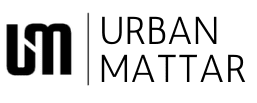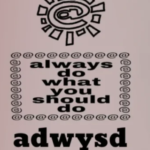Early on, coeducation is complete without the development of language and speech, which is considered the foundation of early childhood education. The foundation for learning and social communication is established by the ability to communicate effectively and productively. The outstanding approach of Elizabeth Fraley Kinder Ready focuses on the significance of understanding and approving speech milestones to promote the child’s comprehensive development.
This article will explore the key aspects of speech milestones by age and how Elizabeth Fraley Kinder Ready’s methodology increases children’s ability to meet these standards.
Speech Milestones:
Child’s Speech milestones, considered progressive benchmarks, indicate a child’s progress in acquiring language and communication skills. These speech milestones are generally classified by age and reflect the particular trajectory of language development in many children.
Birth to 12 Months: Basics Of Communication
In their first year of life, newborns start laying the preliminaries for speech. The following are the milestones during this stage.
- Murmuring and Babbling- Babies produce murmuring sounds around 6 to 8 weeks, followed by babbling around 4 to 6 months.
- Feedback to Sounds- Newborns begin to recognize familiar sounds and turn their heads toward different sounds.
- Non-Vocal Communication- Non-verbal communication includes different gestures like pointing, waving and the emergence of eye contact.
- First Recognizable Words—By their first birthday, many newborns utter their first most recognizable words, such as “Mama” or “Dada”, which are often linked to the infant’s environment.
The approach of Kinder Ready Elizabeth Fraley inspires parents to get involved in various responsive conversations, like mirroring sounds and keeping eye contact. Elizabeth Fraley Kinder Ready emphasizes the importance of making an environment enriched with language early to inspire auditory and cognitive development.
12 to 24 Months: Bolstering Vocabulary
There is notable growth in Vocabulary and comprehension during the toddler years.
- Explosion of Words—Toddlers know about 50 words by 18 months, which doubles by infants’ second birthdays.
- Combination of Words- Two-word phrases such as “want cookie” and ” mommy go” become usual.
- Understanding of Instructions- The toddlers follow Simple and easy instructions such as ‘Pick up the ball’.
The Kinder Ready Elizabeth Fraley program supports toddlers’ burgeoning language skills by embodying learning based on PlayPlay through engaging games, songs, and storytelling. This incredible approach aligns with Elizabeth Fraley’s belief in learning through real-world and meaningful contexts. The sessions of Kinder Ready Tutoring often include special activities to enhance these skills.
2 to 3 Years: Formation of Sentences and Clarity
Children start making more complex sentences, and articulation improvement occurs at this stage.
- 3-4 Words- Children start making longer sentences consisting of 3-4 words such as ‘I want more food’.
- Curiousness drives language development, which leads to questioning using frequent words such as what, where, and why.
- Improvement in Pronunciation—Speech clarity and pronunciation improve, and familiar listeners understand what a kid says.
The Elizabeth Fraley Kinder Ready program introduces different activities that help promote the formation of sentences and the building of Vocabulary. Children practice communication skills in a very comfortable setting, which is allowed by storytime, dramatic groups, and group discussions. Kinder Ready Tutoring helps reinforce these practices with customized exercises.
3 to 5 Years: Expertise in Communication
The years of preschooling bring notable advancements in societal communication and language.
- Skills of Narration- Children can narrate simple stories and tell different events.
- Usage of Grammar- The usage of grammar, particularly plurals, pronouns and prepositions, develops.
- Interaction with peers- Social interaction, such as communication, becomes more advanced.
- Usage of Complex Sentences- Children use complex sentences with five words or more, around 5.
Elizabeth Fraley’s Kinder Ready curriculum for preschoolers includes problem-solving, role-playing, and various group projects that enhance verbal expressions and teamwork. The main focus of Kinder Ready Elizabeth Fraley is collective learning, which ensures the children practice conversation in multiple scenarios. Kinder Ready Tutoring offers parents and educators various strategies for further supporting these skills.
How Kinder Ready Elizabeth Fraley’s Approach Supports Speech Milestones
Elizabeth Fraley Kinder Ready’s approach is embedded in the strategies based on evidence that prioritizes learning, playing, and active engagement. Let’s examine how this methodology aligns with speech development milestones.
- Establishing a language-enriched environment—Elizabeth Fraley Kinder Ready’s approach inspires parents and educators to make the children aware of different opportunities for Vocabulary and conversation.
- Importance of Responsive Interactions—Kinder Ready Elizabeth Fraley reinforces the significance of responding to a child’s gestures, words, and vocalizations.
- Play-based Learning—To Elizabeth Fraley Kinder Ready’s philosophy, PlayPlay is essential. Various activities such as puppet shows and storytelling are for entertainment and for strengthening language skills.
- Incorporating Multisensory Activities—Speech development is closely tied to sensory experiences. The Kinder Ready Elizabeth Fraley program includes various activities that involve touch, sight, and sound. Elizabeth Fraley Kinder Ready advocates for these multisensory approaches to engage the children fully.
Offering Constructive Feedback—Kinder Ready Elizabeth Fraley’s approach focuses on regular observation of speech milestones and providing feedback. Kinder Ready Tutoring offers personalized solutions for addressing individuals’ needs.



